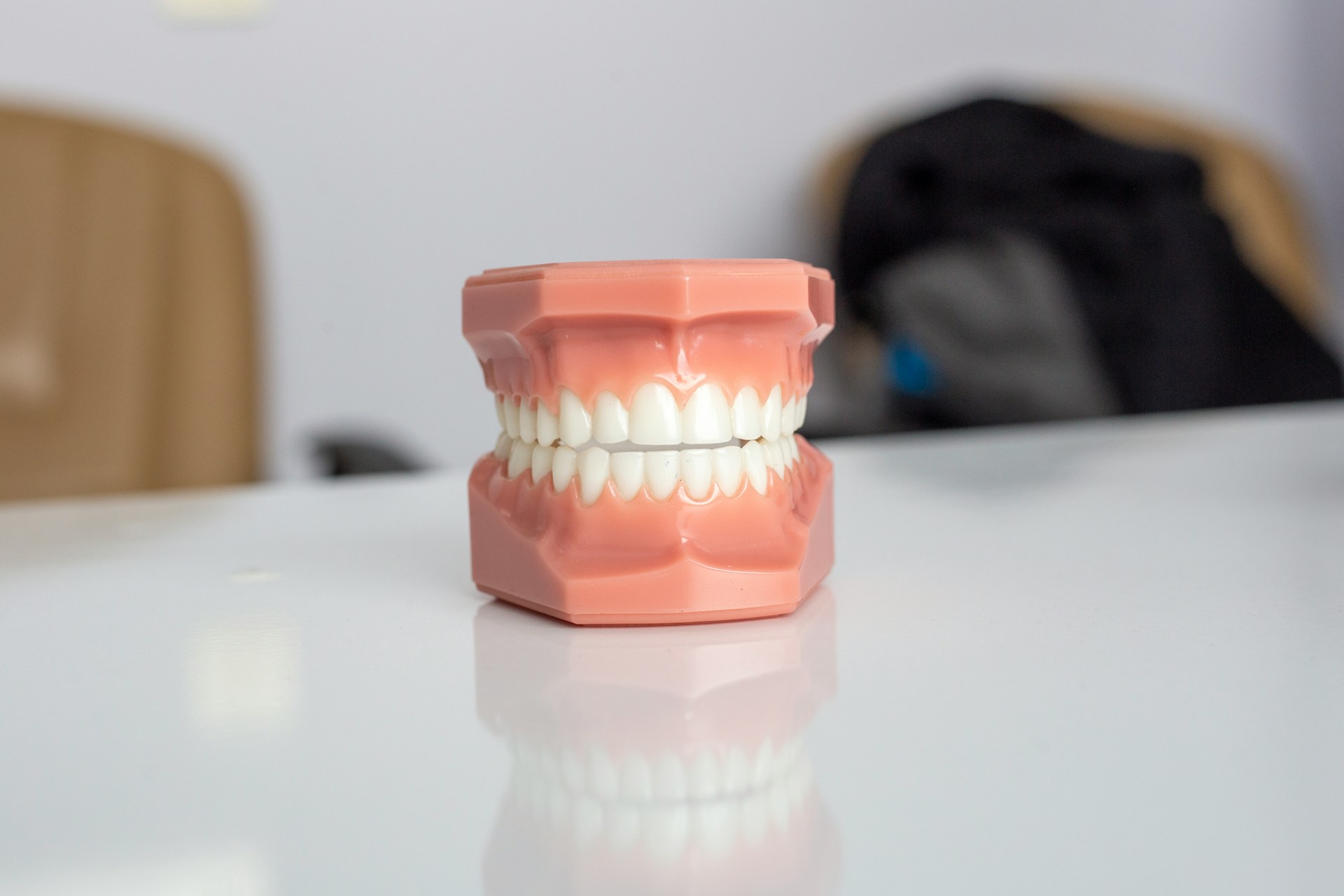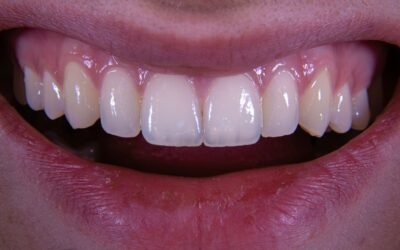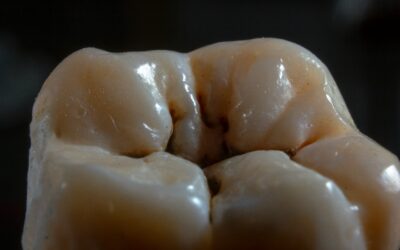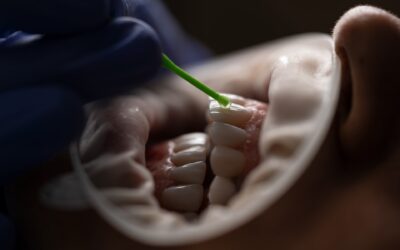If you experience discomfort or a sharp pain when eating or drinking hot, cold, sweet or acidic foods, you might have sensitive teeth. Tooth sensitivity is a common issue that can make everyday activities, like enjoying your morning coffee or a cold treat, painful or unpleasant. In this blog, we’ll explore what causes sensitive teeth, how to relieve the pain, when it’s time to seek dental treatment and the various general dentistry treatment options that can help. In this blog, we’ll explore what causes sensitive teeth, how you can relieve the pain you might be feeling at home, when it’s time to seek dental treatment and the various treatment options that can help.
What causes sensitive teeth?
Tooth sensitivity occurs when the protective layer of enamel on your teeth wears down or when your gums recede, exposing the underlying dentin. The dentin contains tiny nerve endings that can become irritated by certain foods, drinks or even temperature changes. Here are some common causes of teeth sensitivity:
- Enamel erosion: Over time, your tooth enamel can be worn away by acidic foods and drinks (such as citrus, soda, or wine) or from aggressive brushing.
- Gum recession: When your gums pull away from your teeth, it exposes the roots, which are more sensitive than the crown of the tooth.
- Tooth decay: Cavities or cracks in the tooth can expose sensitive areas of the tooth to outside elements.
- Bruxism (teeth grinding): Grinding your teeth, especially at night, can wear down enamel and lead to sensitivity.
- Dental procedures: Certain treatments, such as teeth whitening or a deep cleaning, may cause temporary sensitivity as your teeth adjust.
- Acidic foods and drinks: Consuming a lot of acidic foods and beverages can erode tooth enamel and trigger sensitivity suddenly.
How to relieve teeth sensitivity?
If you’re dealing with pain from teeth sensitivity, there are some home remedies you can try to reduce your discomfort and protect your teeth from causing further problems in the future.
- Use desensitising toothpaste: There’s a wide range of toothpastes available to buy at your local supermarket that are specifically formulated for sensitive teeth. These toothpastes contain compounds which block the transmission of pain from the surface of your tooth to the nerve, thus effectively relieving pain.
- Brush gently with a soft-bristled toothbrush: Sometimes brushing rigorously can do more harm than good. If you’re suffering from sensitive teeth then avoid aggressive brushing, while also switching to a soft-bristled toothbrush which will be gentler on your teeth and gums.
- Avoid acidic foods and drinks: Cut back on acidic foods like citrus fruits, tomatoes and sugary soft-drinks. Or if you do consume these regularly, be sure to rinse your mouth with water afterwards.
- Use a mouthguard: If you grind your teeth at night, a custom-made mouthguard or sports guard can protect your teeth from further erosion.
- Stay hydrated: Drinking plenty of water can help neutralise acids in your mouth and keep your gums healthy.
If you’re currently dealing with the pain of sensitive teeth, there are several home remedies that may help. Consider consuming foods and drinks with anti-inflammatory properties, such as green tea, turmeric, honey with warm water, salt water rinses and other health-boosting options. These can provide some relief and support your overall oral health.
When should you seek treatment?
While sensitivity can often be managed with at-home remedies, there are times when it’s important to seek professional treatment. You should make an appointment with your dentist if:
- The sensitivity is severe or last for more than a few days
- You begin to notice pain with only one specific tooth as this could indicate an underlying issue such as a cavity, broken tooth or gum disease
- You experience swelling or bleeding gums
- Sensitivity occurs after a dental procedure such as a filling or cleaning – if this is the case, contact your dentist so that they can assess if there is any damage or irritation.
Ignoring ongoing tooth sensitivity can lead to more serious dental problems down the line, so it’s important not to put off seeing your dentist. As qualified emergency dentists in the Walsall area, currently accepting new patients, we’re on hand to help you if you feel the need to seek professional treatment for your teeth sensitivity.
Treatment options for sensitive teeth
If you’re struggling with tooth sensitivity, it’s important to know that your dentist can offer a range of effective treatments to help alleviate the discomfort:
- Dental bonding: If your teeth sensitivity is caused by cracks in your teeth or exposed roots from receding gums, cosmetic bonding can be used during which a bonding agent is applied to cover and protect the exposed tooth surface.
- Root canal: If your sensitivity is due to significant tooth decay or an infection, root canal treatment may be necessary to remove the damaged tissue and restore the tooth.
- Fluoride treatments: Your dentist may suggest applying a fluoride gel or varnish to your teeth to help strengthen the enamel and reduce mild to moderate sensitivity.
- Mouthguard: To prevent constant clenching or teeth grinding, your dentist may be able to produce a custom-fitted mouthguard.
- Gum grafting: If gum recession is the cause of your sensitivity, a gum graft may be recommended to cover exposed roots and prevent further damage.
If gum sensitivity is the primary cause of your discomfort, it’s important to seek professional guidance from your dentist. At Cheslyn Hay Dental Practice, our team can assess the underlying issue and provide the best course of treatment to address your specific needs. Whether it’s a dental bonding or a root canal or just a general conversation about home remedies, we’ll ensure you receive the right care to reduce sensitivity and restore your comfort. Don’t hesitate to get in touch with us for personalised advice and treatment at our practice located in Walsall, by booking an appointment online or calling us on 01922 214 702.
What to do if you have another common dental issue?
Are you dealing with another common dental issue and unsure of the best treatment? We’ve explored the causes, preventative tips and treatment options for some of the most common dental problems, which you can read all about. Browse the list below to explore our informative blog posts on each topic.
Don’t let dental issues hold you back from enjoying a healthy, confident smile – explore our resources today to learn more about the best treatments and how to maintain optimal oral health.







